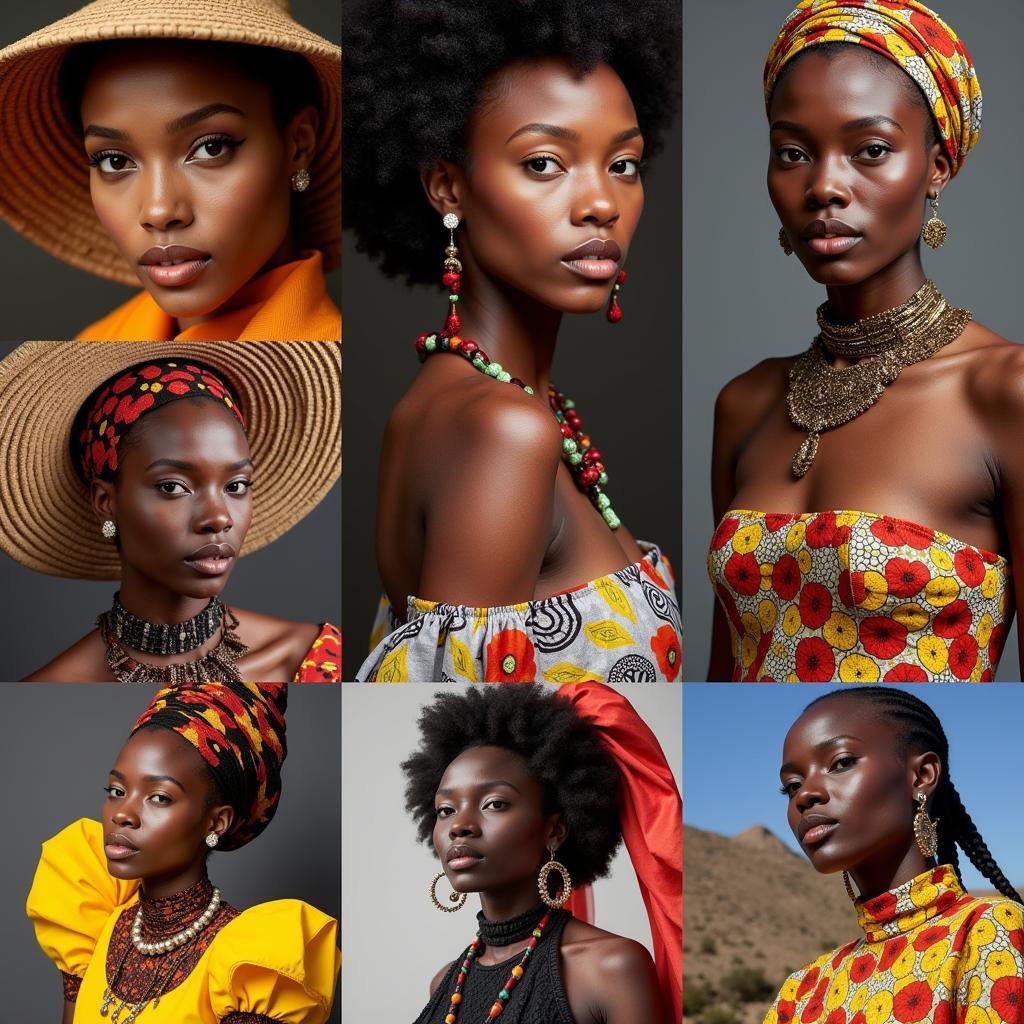African Guy White Hair: Unveiling the Myths and Meanings
The sight of an African guy with white hair often evokes a sense of intrigue and wonder. In many cultures, white hair is associated with wisdom, age, and a life richly lived. But in the diverse tapestry of Africa, the significance of white hair goes beyond simple biological processes.
The Science Behind the Silver
Before delving into the cultural interpretations, it’s important to understand the science behind hair turning white. Hair follicles contain pigment cells called melanocytes, which produce melanin, the substance that gives our hair its color. As we age, the production of melanin slows down and eventually stops, leading to hair losing its pigment and appearing gray or white. This process is largely determined by genetics, but other factors like stress, diet, and certain medical conditions can also play a role.
More Than Just Age: Cultural Significance
While gray hair is often seen as a natural part of aging globally, in many African cultures, it carries profound cultural and spiritual weight. Here are some interpretations:
1. Wisdom and Respect:
In many African societies, elders hold a revered position. Their white hair is seen as a physical manifestation of the wisdom and experience they’ve accumulated over a lifetime. The longer a person lives, the more knowledge they acquire, and the whiter their hair becomes, symbolizing their esteemed status within the community.
2. Spiritual Connection:
White hair can also represent a strong spiritual connection. In some cultures, it’s believed that as people age, they grow closer to the ancestors and the spiritual realm. The white hair is seen as a physical manifestation of this spiritual connection, a sign that the person is transitioning into a different phase of existence.
3. A Blessing from the Divine:
In certain African cultures, particularly those with strong ancestral worship traditions, white hair is considered a blessing from the gods or ancestors. It’s seen as a sign of favor and protection, indicating that the person is living a life in accordance with the will of the divine.
Myths and Misconceptions
Like many cultural phenomena, the perception of white hair in Africa is also intertwined with myths and misconceptions:
-
Myth: Premature graying means a shorter lifespan.
- Fact: While genetics plays a role in hair graying, there’s no scientific evidence to suggest that premature graying is linked to a shorter lifespan.
-
Myth: Pulling out a gray hair will cause more to grow.
- Fact: This is a common myth not specific to Africa. Plucking a gray hair will only remove that single hair; it won’t affect the surrounding follicles or cause more gray hairs to grow.
The Evolving Perception of White Hair
With globalization and increasing Western influence, the perception of white hair is gradually shifting in some parts of Africa, particularly among younger generations. While respect for elders remains deeply ingrained, some younger people now embrace dyeing their hair to cover up grays, influenced by Western beauty standards that often associate youthfulness with beauty.
A Symbol of Distinction
Despite these evolving perceptions, the sight of an African guy with white hair continues to evoke a sense of reverence and respect in many communities. It serves as a visual reminder of the wisdom, experiences, and cultural values passed down through generations. While the science behind graying hair is universal, the cultural interpretations woven into this natural phenomenon in Africa add a layer of depth and richness, reminding us of the beauty and diversity of human experiences.

